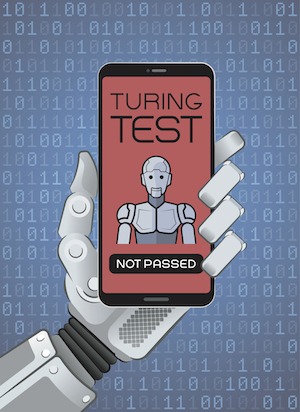Alan Turing argued that if the machine could successfully pretend to be human to a knowledgeable observer then you certainly should consider it intelligent.
With that in mind I want to explore whether the NHS 111 helpline (a UK National Health Service helpline) could be a candidate for an AI takeover and if it were; would it pass the Turing test?
From the NHS website, the 111 service aims to:
- find out what local service can help you
- be connected to a nurse, emergency dentist, pharmacist or GP
- get a face-to-face appointment if you need one
- be told how to get any medicine you need
- get self-care advice
I must confess to never having used this service mainly because what’s on offer can be readily found on the Internet. However, many people do.
I imagine a call centre and operators following scripts which are based upon a decision tree. I’m sure at this point you’re already thinking an ideal candidate for AI?
Perhaps the most critical part of the project would be accurate speech recognition eg. Recognising dialects, accents, stammering, nuances in speech and possibly foreign languages too. Once the caller’s perceived problem could be deciphered then a decision tree would be the easy part of the exercise.
A recognition confidence factor should be built in to the algo so that the caller could be transferred to a human operator if the score was low.
So, would an AI NHS 111 pass a Turing test?
Would a non AI NHS 111 pass a Turing test? Is it any better than a family medical book, which has similar decision trees?
Perhaps we should consider the question in more detail? Mention is made of a knowledgeable observer. With that in mind I am sure an experienced MD and /or an expert in speech recognition could find fault in either, therefore the answer is no.
There is a ‘but’ here though and it’s worrying; there would be a significant number of ordinary users who would have faith in their interaction and the stats may be on their side!
